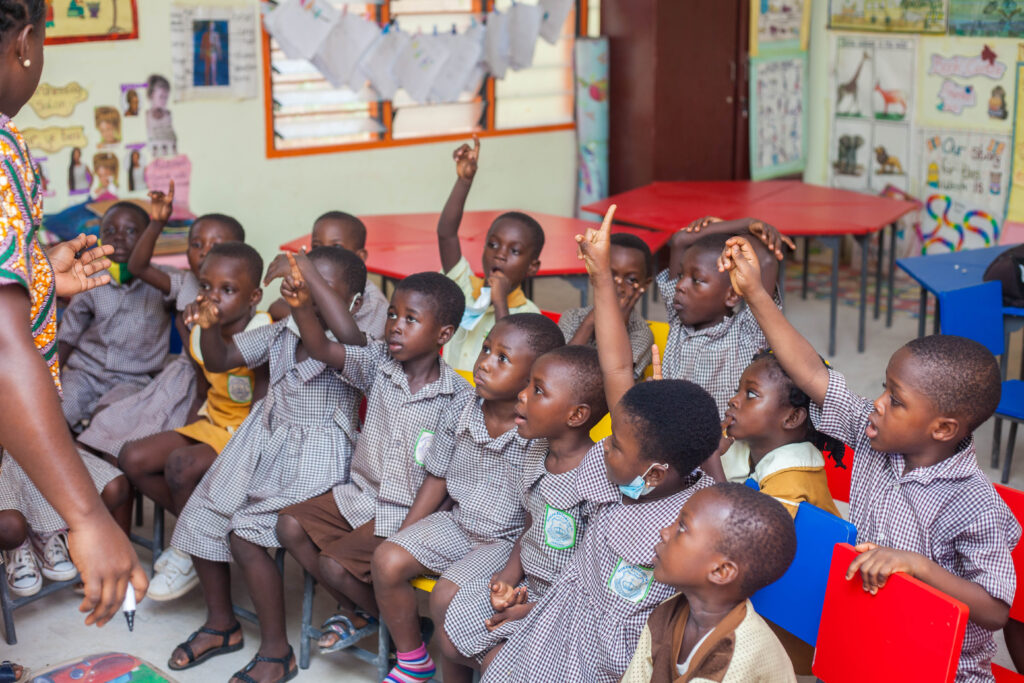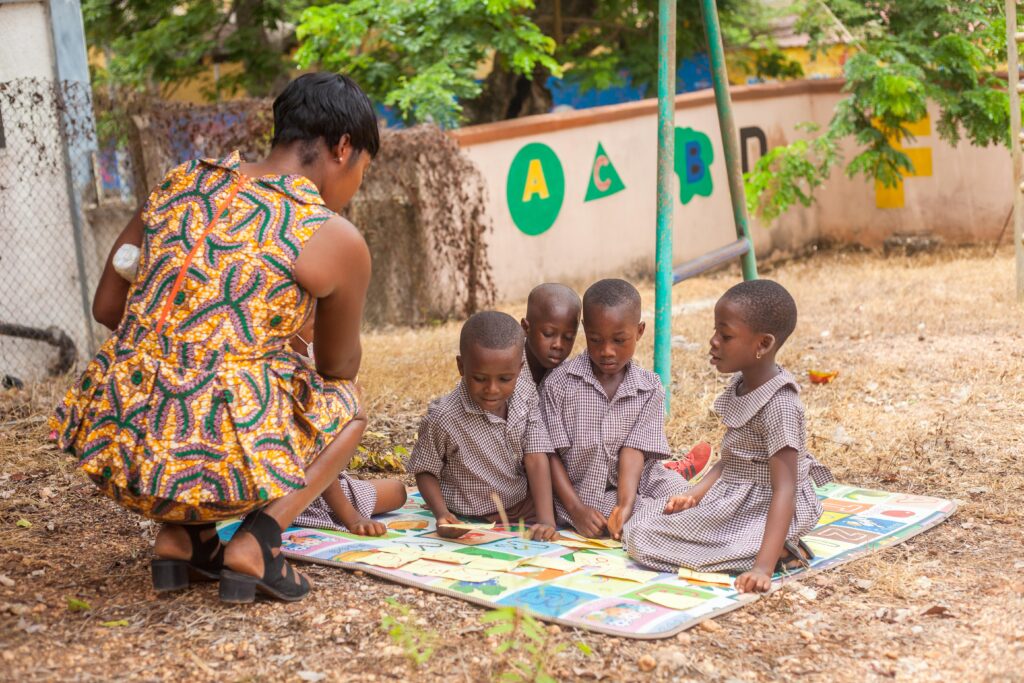Introduction to the blog series

Sabina Awortwe, our Partnership and Programme Manager, has written a series of thought-provoking pieces on the contemporary ECE scene in Ghana. Here is the first of these. It’s a myth-buster, outlining Sabina’s views on the damage to young children’s foundational learning caused by pervading myths and misconceptions about early childhood education.
About Sabina
Sabina is a preschool teacher educator with over three years’ experience of delivering Foundation First’s practical teacher development and support work and managing our partnerships and programmes. Sabina has a particular interest and expertise in educational frameworks and in the foundations of best practice early childhood education. In her role with FF, she has worked on a range of teacher education partnership initiatives with other national and international NGOs.
Some common misconceptions about early childhood education in Ghana: How Foundation First is addressing the issues
Early childhood education (ECE) is a programme for children from two to eight years old, which aims at the holistic development of a child’s social, emotional, academic and psychomotor skills that lay a solid and broad foundation for lifelong learning and wellbeing.
In Ghana, prior to the government setting ECE as a priority in 2012 through its Programme to Scale-Up Quality Kindergarten Education in Ghana, there had been limited awareness about the unique nature of programmes for young children. However, despite the increased awareness in recent years, many myths and misconceptions about working in ECE persist.

Misconception #1: ECE is ‘day care’ and ECE professionals are ‘babysitters’
Some parents take the view that ECE professionals simply play all day and babysit children. This misconception has resulted in children failing to benefit from an educational experience that could assist their development and learning experiences for years to come. A well-trained early learning teacher has deep knowledge of how children develop physically, emotionally, socially and academically and they use this knowledge to create an engaging classroom environment and to individualise instruction for each child to ensure appropriate support at each stage in their development.
This is why Foundation First (FF) believes that effective early learning facilitators are far from babysitters and that effective ECE is far from day care. FF is helping to erase these myths/misconceptions by empowering ECE teachers with appropriate scientific and educational background knowledge and providing them with best practice curriculum-related teaching and learning experiences.

Misconception #2: Early childhood education forces children to start studying too early
Many Ghanaians think that this early stage in life is meant simply for kids to be free from learning and enjoy being young. To Foundation First, this is a complete myth. In our experience, children learn each and every day and they learn and take in more information at a younger age than they do when older. So early education is basically taking advantage of this early years period. Furthermore, research has proven that early years education helps, rather than harms, children’s academic future (Heckman, 2006; Barnett, 2011; and European Commission, 2014).
Our brain only gets built once and research has also proven that brain building is especially critical between the ages of two and seven (Sriram, 2020). That is why our FF training approach uses information from neuroscience and the foundations of early years learning to guide preschool teachers to expose young children to varied, stimulating experiences within calm, friendly environments. Our approach also emphasises the need for children to acquire executive function skills, including critical thinking, making connections, taking on challenges, and being self-directed and engaged learners.

Misconception #3: Early childhood education is a waste of government spending
FF thinks the opposite: that the government and society will benefit more from spending on early years education than on any other stage of education. Currently, many children are failing to achieve their potential in life and this can be looked at in terms of economic loss, such as human capital loss, so spending more on ECE would have economic benefits such as human capital gains (Dickens, Sawhill and Tebbs, 2006). Furthermore, investment in ECE reduces the chances of young children failing to properly develop key metacognitive skills, such as questioning and reflecting, as these skills “contribute significantly to [young children’s] learning and success” (Escolano-Perez, Herrero-Nivela and Anguera, 2019).
Furthermore, children who receive a solid foundation of quality ECE are more likely to live a healthy life (e.g. in terms of oral hygiene, hand washing, caring for their bodies, and being aware of nutritious foods), more likely to avoid negative lifestyles that can endanger their lives, more likely to continue their education when they finish high school, more likely to graduate from college, more likely to obtain highly skilled jobs that pay well, and less likely to get involved in criminal activity.
The scientific evidence is very clear as to what we should be doing in the ECE sector and how we should be doing it, as well as why doing it would lead to better outcomes and a better society for all. We, at Foundation First, will continue to promote this scientific evidence in our mission to undermine prevailing myths and misconceptions about ECE.
References:
Barnett, W.S. (2011). Effectiveness of Early Educational Intervention. Science, 333, 975-978.
Dickens, W.T., Sawhill, I. and Tebbs, J. (2006). The Effects of Investing in Early Education on Economic Growth. Policy Brief #153 The Brookings Institution.
Escolano-Pérez, E., Herrero-Nivela, M.R. and Anguera, M.T. (2019). Preschool Metacognitive Skill Assessment in Order to Promote Educational Sensitive Response From Mixed-Methods Approach: Complementarity of Data Analysis. Frontiers in Psychology. (https://doi.org/10.3389/fpsyg.2019.01298).
European Commission (2014). Proposal for Key Principles of a Quality Framework for Early Childhood Education and Care. Report of the Working Group on Early Childhood Education and Care under the auspices of the European Commission, Brussels.
Heckman, J.J. (2006). Skill Formation and the Economics of Investing in Disadvantaged Children. Science, 312(5782), 1900-1902 (doi:10.1126/science.1128898).
Sriram, R. (2020). Why Ages 2-7 Matter So Much for Brain Development. George Lucas Educational Foundation: Edutopia. (https://www.edutopia.org/article/why-ages-2-7-matter-so-much-brain-development).


I’m impressed,God Bless You Foundation First For Helping Clearing some negative thoughts of parents.
Thank you for this piece. I pray many people get to read and erase all those misconceptions from their hearts and minds.